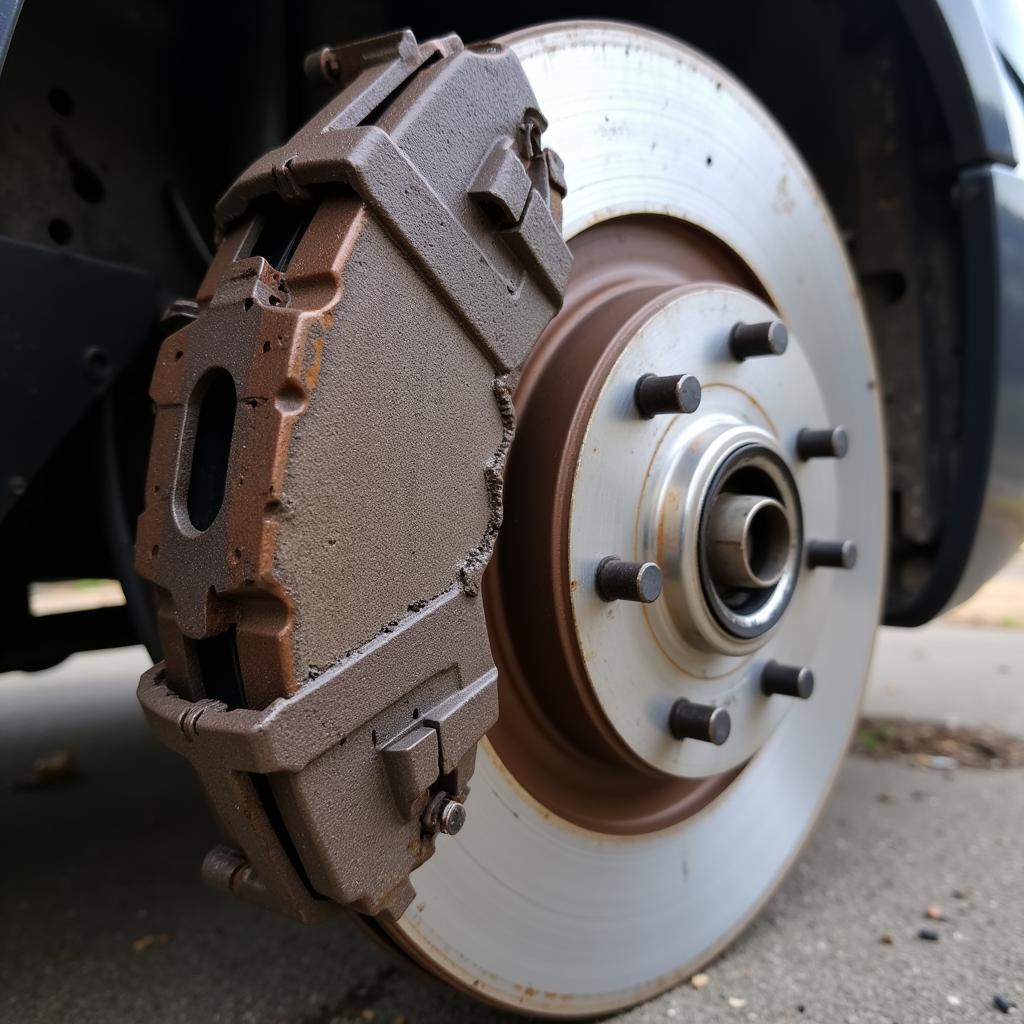Pushing back your car’s regular service might seem tempting, especially when life gets busy. But how long can you delay a car service without risking costly repairs down the road? This article delves into the potential consequences of postponing maintenance and offers expert advice on striking the right balance. We’ll explore the factors influencing service intervals, the warning signs your car needs immediate attention, and the importance of adhering to a regular maintenance schedule.
Understanding Why Car Service Intervals Matter
Manufacturers provide recommended service intervals for a reason. These guidelines, found in your owner’s manual, are designed to keep your car running smoothly and prevent premature wear and tear. Ignoring them could lead to a decline in performance, fuel efficiency, and safety. Furthermore, delaying essential services could void your warranty, leaving you responsible for potentially expensive repairs.
Regular maintenance, like oil changes, keeps your engine lubricated and prevents friction that can cause damage. Delaying this seemingly simple task can lead to sludge buildup, reducing engine efficiency and potentially causing catastrophic failure.
The Risks of Delaying Car Service
Putting off car service isn’t just inconvenient; it’s potentially dangerous. Worn brakes, for example, significantly increase stopping distances, putting you and others at risk. Similarly, neglecting tire rotations can lead to uneven wear, affecting handling and increasing the risk of blowouts.
 Worn Brake Pads Due to Delayed Service
Worn Brake Pads Due to Delayed Service
Beyond safety, delaying service can also hit your wallet hard. A small problem left unaddressed can snowball into a major repair, turning a routine service into a costly headache. For instance, a minor oil leak can eventually lead to complete engine failure.
How long can you delay a car service? The answer isn’t a simple one-size-fits-all. It depends on several factors, including your car’s make and model, your driving habits, and the specific service required.
Factors Affecting Service Intervals
- Driving Conditions: Harsh driving conditions, such as frequent stop-and-go traffic, extreme temperatures, or rough terrain, can accelerate wear and tear, necessitating more frequent servicing.
- Vehicle Age and Mileage: Older vehicles with higher mileage generally require more frequent maintenance than newer ones.
- Manufacturer Recommendations: Always consult your owner’s manual for the manufacturer’s recommended service intervals. This is your best guide for ensuring optimal performance and longevity. how long can you delay car service provides more information on this crucial topic.
Recognizing the Warning Signs
Your car often communicates its need for service through various warning signs. Ignoring these signals can lead to more serious problems. Some common indicators include:
- Unusual Noises: Squealing brakes, knocking sounds from the engine, or grinding gears require immediate attention.
- Warning Lights: Never ignore illuminated dashboard warning lights, such as the check engine light or oil pressure light. what does service esc on car mean can help you understand some common warning lights.
- Fluid Leaks: Check for leaks under your car. Any unusual fluids, such as oil, coolant, or brake fluid, warrant a trip to the mechanic.
- Decreased Performance: If your car is experiencing reduced fuel efficiency, sluggish acceleration, or difficulty starting, it’s time for a service.
“Regular maintenance is an investment, not an expense,” says automotive expert, John Miller, ASE Certified Master Technician. “It’s far cheaper to address small issues proactively than to deal with major repairs later.”
Staying on Track with Scheduled Maintenance
Creating and adhering to a regular maintenance schedule is the best way to avoid costly repairs and keep your car running smoothly. This involves:
- Consulting Your Owner’s Manual: This is your primary resource for recommended service intervals.
- Keeping Records: Maintain a log of all services performed, including dates and mileage.
- Finding a Trusted Mechanic: A reliable mechanic can provide personalized advice and ensure quality service. how long does a car service usually take can help you plan your service appointments. You may also want to know how much time does it usually take for car servicing.
“Think of your car like your body,” advises Sarah Johnson, lead automotive engineer. “Just like regular checkups with a doctor, regular car service is crucial for preventing problems and ensuring optimal performance.” do car service drop off at magic kingdom might be something to consider if you’re planning a trip.
Conclusion
How long can you delay a car service? While there’s some flexibility, pushing it too far can lead to significant safety risks and costly repairs. By understanding your car’s needs, recognizing warning signs, and adhering to a regular maintenance schedule, you can keep your car running smoothly and avoid unnecessary expenses.
FAQ
- What happens if I delay my car service?
- How often should I change my car’s oil?
- What are the most important car maintenance tasks?
- How do I find a reliable mechanic?
- What are the signs my car needs immediate service?
- How can I save money on car maintenance?
- Is it okay to use aftermarket parts for my car service?
Need help with your car? Contact us via WhatsApp: +1(641)206-8880, Email: [email protected] or visit us at 456 Oak Avenue, Miami, FL 33101, USA. Our customer service team is available 24/7.
